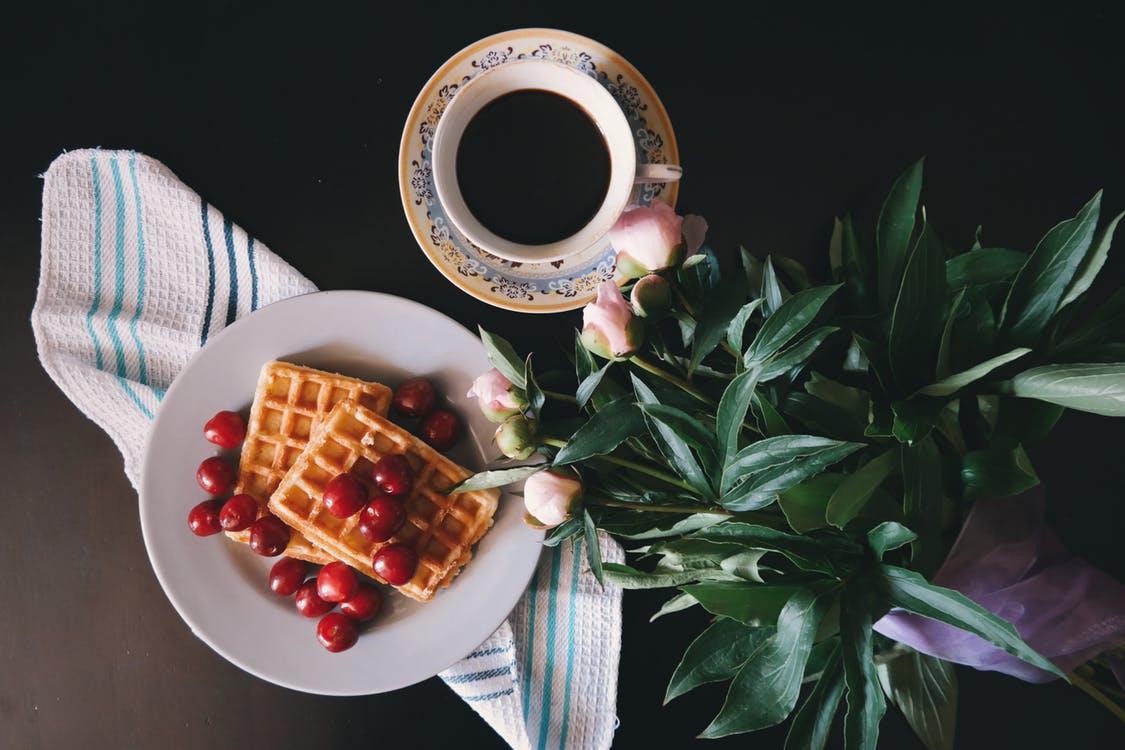
A lot of people are surprised to hear that I’ve not always had a positive relationship with food. Nowadays, I eat three complete meals, snack frequently, and wouldn’t ever turn down a good vegan brownie. But this wasn’t always the case. In fact, until this year, I’ve always regarded food with a certain acrimony.
I was a vegetarian when I first developed an eating disorder. While it’s true that some individuals with disordered eating use vegetarianism as a guise for restrictive eating (because vegetables and grains are less caloric than, say, meat) my diet never fueled or informed my anorexia. I was a vegetarian because I didn’t believe in eating animals. Similarly, I transitioned to veganism because I learned about the dairy and egg industries, and I no longer wanted to support their cruel practices. Even so, health and contentment around food was elusive for many years.
What finally changed for me–the thing that finally shifted my perspective in a meaningful way–was learning to make veganism work for me rather than against me. The following points explain exactly what I mean.
1. Veganism, at its core, is about eating closer to the earth and avoiding animal products. Being vegan doesn’t mean trying a million meat analogues and staying up-to-date on foodie trends. That’s certainly a fun component of the diet, but for me, it was detrimental to constantly think about trying new-to-me foods, and subsequently restrict or binge on them.
Instead, approaching vegan food in its unadulterated form can be freeing. Focusing on vegetables, beans, grains, and other simple foods can isolate us from an otherwise food-focused lifestyle. (Of course, when you feel that you’ve made strides in recovery, it’s perfectly okay to enjoy any vegan food that’s appealing to you.)
2. Being vegan is about practicing non-violence. If you don’t want to hurt animals, why would you hurt yourself? In this way, we might learn to accept that we need nurturing and care as much as our non-human friends. When you eat, think about the impact you’re making: the earth, animals, and your body are all benefiting from the nourishing food you’re consuming. This can be a difficult lesson to learn, but it’s so worth it when you can see food as a function of your compassion.
3. Veganism is more than food. Food is only one, if central, component of veganism. Over time, I’ve learned that my activism can stretch far beyond my plate, and this takes the pressure off my need to eat perfectly or according to some impossible standard. Last year I began overhauling my closet, incorporating more ethical statements to my wardrobe, and I no longer buy items that were made in a sweatshop. Of course, veganism is intersectional, so I enjoy learning about feminist and environmentalist principles that align with my lifestyle. I no longer regard veganism as monolithic, and in doing so, I’ve been liberated from a hostile relationship with food.
4. Nutrition is important. Vegans tend to propagate some harmful myths within and outside plant-based circles. As a group, we tend to treat the diet as a panacea, as if no supplements or oversight is needed. But the truth is that veganism, as with any diet, has the potential to cause nutrient deficiencies and may in fact perpetuate disordered behaviors. Case in point: I wasn’t eating enough protein, both due to restriction and plain ignorance, and losing even more weight. As soon as I sought help from a registered dietitian, she helped me create a meal plan to meet my needs, and my weight has been stable ever since.
5. Have fun! Most importantly, veganism should be a fun and fruitful journey. I know that it might seem impossible to enjoy food if you’re suffering from an eating disorder, but I strongly believe that a plant-based lifestyle can be healing in the most unexpected of ways. Even though I experienced many dark days in my early years as a vegan, I’ve learned that living ethically is my truth, a conviction that heals me more each and every day.
Have you struggled with your relationship with food? What has helped you have a healthier mindset about eating?
Also by Molly: 4 Reasons Why Your Office BFF May Be Holding You Back
Related: How A Plant-Based Diet Helped Me Find Body Acceptance
4 Media Stars Who Are Changing The Body Positivity Talk (We’re All Ears)
Get more like this—Subscribe to our daily inspirational newsletter for exclusive content!
__
Photo: Pexels




